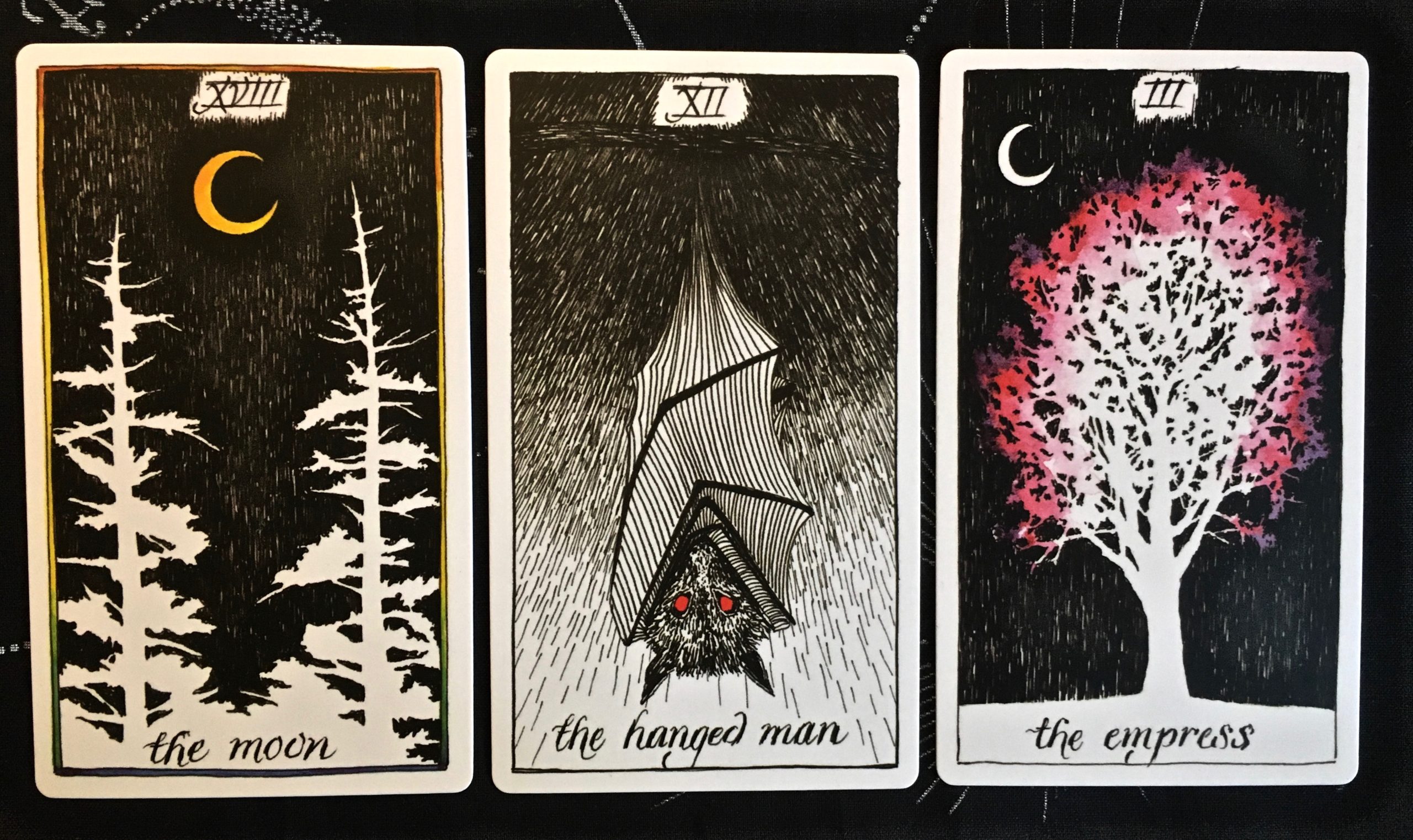When I first thought of creating a tarot blog, the first name I thought of was Maenad Tarot. I honestly can’t remember coming up with any other name, and as soon as I thought of it, I knew that was it. It felt right. I worried about people remembering or spelling or even pronouncing it (in Greek it would be closer to “my-nad,” but in English I usually pronounce it “may-nad”). But there was no arguing with my intuition on this one. So what’s a maenad, and what do they have to do with tarot?
Maenads have always been a source of fascination for me. Maenads, also known as bacchae, are the followers of Dionysus, god of wine, drama, mystery, and ecstasy. Ecstasy comes from the prefix ek (out, from, away from) and stasis (position, state), and so ek-stasis, “out of place.” To be in ecstasy is to be out of place, to be taken out of your normal state of mind. Through music, dance, and surrender to the divine, the maenads become entheos, “god-within,” inspired, possessed. They dance themselves into an alternate state of being.
It’s not all frolicking in the mountains. In their frenzies, the maenads might dismember goats with their bare hands and eat their raw flesh. They might rip men who threaten them (and thus blaspheme against their god) limb from limb. And as we pick apart these stories, problematic elements can arise. But at their best, for me, maenads have always represented a sense of queer feminist possibility. There’s beauty in the idea of women living outside of heteronormative social reproduction, devoting themselves to strange and sacred vocalization and movement. They are the Empress, full of joy at the beauty of the material world. They are the Hanged Man, willingly surrendering control to gain enlightenment. They are the Moon, losing themselves to mystery and illusion in the wild night.
Tarot can function as a small source of ecstasy, of being outside the self, of opening up to the unknown. Reading tarot prompts me to step outside of my own life and ask hard questions. Why do I make the choices I make? What forces are at work that I’m not aware of? How can I live more fully? By disrupting habitual ways of thinking, we can discover different aspects of the self. It’s not fortune telling. The maenads were not traditionally associated with divination, strictly speaking. Whatever wisdom they gained from their revels couldn’t be transmitted through the telling of it. Some things you just have to experience for yourself.
So what’s a maenad? A maenad lives outside of dominant systems. A maenad trusts in the divine. A maenad knows her joy is sacred. A maenad experiences the fullness of the earth’s pleasures. A maenad seeks spiritual community. A maenad can slip through your grasp or tear you apart if you try to hold her back. A maenad has wine on her tongue and blood on her hands. A maenad lives deeply in her own body and outside of her own mind. A maenad surrenders, and through surrender, she finds ecstasy.
I’m not a maenad, not really. But I think sometimes that maybe, for just a little while, I’d like to dance on the mountainside, to open myself to possibility, to be out of place.

